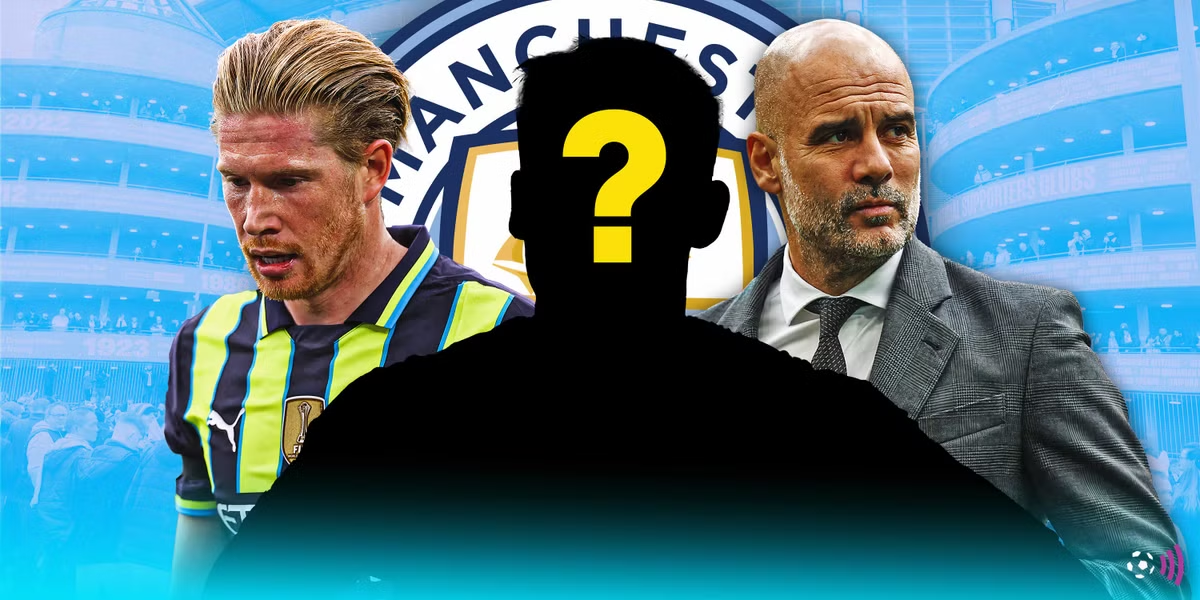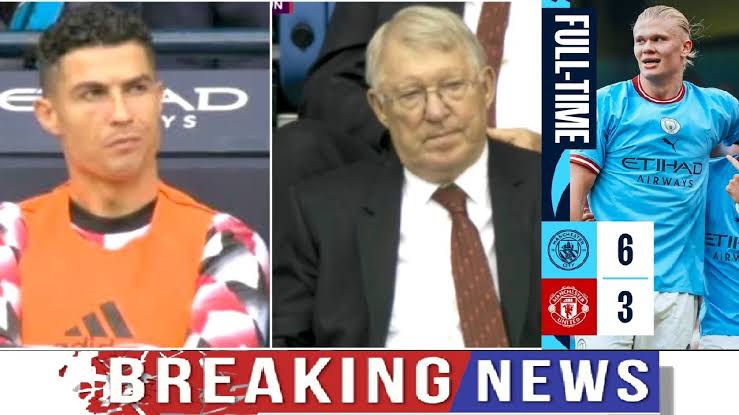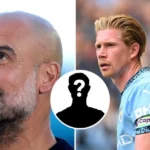Man City have an outstanding candidate to be their next captain – and they already know it

The captain’s armband at Manchester City has become something of a revolving door in recent years, with the club cycling through leaders at an unprecedented rate since the departure of their legendary skipper Vincent Kompany in 2019. As Bernardo Silva currently holds the prestigious role, questions are already being raised about who will next inherit the responsibility of leading one of England’s most successful clubs into the future.
The Current Leadership Landscape
Under Pep Guardiola’s meticulous management, Manchester City operates with a carefully structured leadership hierarchy. This season, the Catalan coach has entrusted the captaincy to Bernardo Silva, the Portuguese midfielder whose technical brilliance and unwavering commitment have made him an integral part of the City machine. Silva leads a five-man leadership group that includes Ruben Dias, Rodri, and surprisingly, Erling Haaland, with the Norwegian striker being groomed for future leadership responsibilities despite his relatively recent arrival at the Etihad.
The decision to include Haaland in the leadership circle represents Guardiola’s forward-thinking approach to developing not just players, but leaders. At just 24 years old, the prolific striker has already demonstrated maturity beyond his years, and his inclusion suggests City are thinking long-term about their leadership structure. However, while Haaland’s development as a leader is encouraging, the immediate succession question remains focused on more established figures within the squad.
The Dias Factor: A Captain in Waiting
Ruben Dias stands out as the most compelling candidate for the captaincy, and his credentials are impressive by any measure. The 28-year-old Portuguese center-back has been part of City’s leadership group for five consecutive seasons, a remarkable achievement considering he only joined the club in 2020. His rapid integration into the leadership structure speaks volumes about his natural authority and the respect he commands from teammates and coaching staff alike.
Dias’ leadership journey began early in his career. At Benfica, he captained youth teams and represented Portugal at various age-group levels, always wearing the armband with distinction. His leadership qualities were evident from the moment he arrived in Manchester, and it took just one year for Guardiola to recognize his potential by adding him to the leadership group. His first taste of captaincy came in a memorable 6-3 victory against RB Leipzig in the Champions League, where he led by example in a thrilling encounter that showcased City’s attacking prowess.
What makes Dias particularly suited to the captaincy is his combination of consistency and character. Unlike some of his predecessors who took on the role later in their careers, Dias is entering his prime years and represents the future of the club. His defensive leadership is unquestionable, organizing the backline with the same precision that Kompany once brought to the role. But it’s his broader influence on the team’s mentality and his ability to inspire teammates during crucial moments that mark him out as captain material.
The Revolving Door of Recent Captains
The contrast between City’s current captaincy situation and the Kompany era is stark. Vincent Kompany’s eight-year tenure as captain provided stability and continuity that the club has struggled to replicate since his departure. The Belgian defender embodied everything the role demanded, combining on-field excellence with inspirational leadership that helped transform City into the dominant force they are today.
Since Kompany’s farewell in 2019, City has seen a parade of captains, each bringing their own qualities but none providing the longevity that the role traditionally demands. David Silva, the Spanish magician whose artistry graced the Etihad for over a decade, served as captain for just one season before his emotional departure. His leadership was quiet but effective, leading by example through his exceptional technical ability and professionalism.
Fernandinho followed Silva into the role, bringing his Brazilian flair and defensive tenacity to the captaincy. The versatile midfielder served for two seasons, providing stability during a transitional period for the club. His leadership style was more vocal than Silva’s, and he proved adept at bridging the gap between different generations of players within the squad.
The German midfielder Ilkay Gundogan then took over, but his tenure lasted just one season before his surprising move to Barcelona. Gundogan’s captaincy was marked by his intelligent play and tactical awareness, qualities that translated well to leadership responsibilities. However, his departure left City scrambling for another captain, highlighting the challenges of building long-term leadership around players approaching the twilight of their careers.
Kyle Walker’s appointment as captain represented a shift toward a more physically imposing leader, with the English full-back’s pace and athleticism making him a natural choice. However, his 18-month tenure ended in acrimonious circumstances with his controversial transfer to AC Milan, leaving City to once again search for a new leader.
Kevin De Bruyne’s brief stint as captain was perhaps the most emotionally charged of all recent appointments. The Belgian midfielder, widely regarded as one of the greatest players in City’s history, brought his exceptional vision and passing ability to the leadership role. However, his time as captain was cut short by his own emotional farewell last summer, bringing to an end one of the most successful partnerships in the club’s history.
Silva’s Current Role and Future Uncertainty
Bernardo Silva’s appointment as the current captain represents both continuity and uncertainty for Manchester City. The Portuguese midfielder has been instrumental in City’s recent success, contributing to multiple Premier League titles and the club’s historic Champions League triumph. His work rate, technical ability, and tactical intelligence make him an ideal representative of Guardiola’s philosophy on the pitch.
However, Silva’s contract situation adds an element of uncertainty to the captaincy succession. With his current deal expiring at the end of the season, and comments made during the Club World Cup suggesting this might be his final campaign at the Etihad, City could once again find themselves searching for a new captain. While Silva has not definitively stated his intentions, the possibility of his departure would leave City looking for their seventh captain in nine seasons, a statistic that highlights the instability in the leadership position.
Silva’s potential departure would represent a significant loss for City, not just in terms of captaincy but also in pure footballing ability. His versatility allows him to play multiple positions, and his understanding of Guardiola’s tactical system is second to none. Should he choose to leave, replacing his leadership qualities and on-field contribution would be challenging for any successor.
The Natural Succession: Why Dias Fits the Profile
If Silva does depart, Ruben Dias emerges as the overwhelming favorite to assume the captaincy on a permanent basis. His credentials are compelling, and his profile fits perfectly with what City needs in their next long-term leader. Unlike the recent trend of appointing captains in the latter stages of their careers, Dias represents the future of the club and could potentially hold the role for many years to come.
Dias’ leadership style draws comparisons to Kompany, with both players combining defensive excellence with inspirational leadership. His ability to organize the defense and communicate with teammates in multiple languages makes him invaluable in City’s cosmopolitan dressing room. The Portuguese international’s presence is felt throughout the team, and his consistency in performance provides the stability that the captaincy demands.
The center-back’s guarantee of regular starting positions gives him an advantage over other potential candidates. While Silva’s role in midfield faces competition from various talented players, Dias is virtually assured of his place in the starting eleven when fit. This consistency is crucial for a captain, as it ensures the leader is on the pitch for the majority of important matches.
Furthermore, Dias’ international experience with Portugal adds another dimension to his leadership credentials. Playing alongside other world-class players at the highest level has prepared him for the pressures and responsibilities that come with captaincy. His ability to perform in high-stakes situations, whether for club or country, demonstrates the mental strength required to lead Manchester City.
The Broader Leadership Group and Future Development
While Dias appears to be the natural successor, the development of the broader leadership group provides interesting insights into City’s future plans. The inclusion of Erling Haaland in the leadership circle represents a bold move by Guardiola, recognizing the Norwegian’s potential to become not just a goal-scoring machine but also a leader within the squad.
Haaland’s development as a leader is particularly intriguing given his relatively recent arrival at the club. His goal-scoring exploits have already made him a fan favorite, but leadership requires different qualities. His inclusion in the leadership group suggests City see him as more than just a goal scorer, viewing him as someone who can inspire teammates and drive standards throughout the squad.
Rodri’s presence in the leadership group also merits attention. The Spanish midfielder has become increasingly influential in City’s play, with his ability to control the tempo and dictate play making him indispensable to Guardiola’s system. His leadership qualities are evident in his performances, and he could certainly be considered for future captaincy roles. However, his position in defensive midfield sometimes sees him substituted in games, which could limit his suitability for the captain’s role compared to Dias’ more guaranteed starting position.
The Importance of Leadership Continuity
Manchester City’s recent captaincy instability highlights the importance of finding a long-term solution to the leadership question. The constant changes in captaincy can disrupt team dynamics and affect the development of younger players who look to the captain for guidance and inspiration. A stable leadership structure provides the foundation for sustained success, and City’s achievements during the Kompany era demonstrate the value of continuity in the captain’s role.
The club’s success on the pitch has masked some of the potential negative effects of captaincy instability, but as competition intensifies and new challenges emerge, having a settled leadership structure becomes increasingly important. A captain who can grow with the team and adapt to changing circumstances while maintaining consistent standards is essential for long-term success.
Contract Considerations and Future Planning
The news that City want to extend Dias’ contract, which currently expires in two years, signals their long-term commitment to the defender and strengthens his case for the captaincy. Contract extensions for key players are rare at City unless the club sees them as integral to future plans. The fact that they are actively pursuing an extension for Dias suggests they view him as a cornerstone of their future, both as a player and potentially as a leader.
This contract situation also provides City with an opportunity to structure a long-term leadership plan. By securing Dias’ future and potentially naming him as the next captain, they could provide the stability that has been missing since Kompany’s departure. Such a move would allow younger players to develop under consistent leadership and help maintain the high standards that have become synonymous with Manchester City.
Conclusion: The Path Forward
As Manchester City continue their pursuit of domestic and international honors, the question of captaincy succession becomes increasingly important. While Bernardo Silva provides excellent leadership in the current season, the uncertainty surrounding his future means the club must plan for potential change.
Ruben Dias stands out as the natural successor, combining the defensive excellence, leadership qualities, and long-term commitment that the role demands. His journey from new signing to leadership group member to potential captain represents the type of development that City need to build upon. With his contract situation likely to be resolved in the club’s favor, Dias appears destined to become the next long-term captain of Manchester City.
The appointment of Dias as captain would provide the stability and continuity that City have lacked since Kompany’s departure. His leadership credentials, combined with his importance to the team’s tactical structure, make him the ideal candidate to lead the club into the next phase of their development. For a club that has achieved so much in recent years, having settled leadership could be the final piece in their quest for sustained excellence at the highest level.
Whether the transition happens at the end of this season or in the future, Dias’ time as captain seems inevitable. The question is not if, but when he will inherit the armband and begin his own chapter in Manchester City’s rich captaincy tradition.















